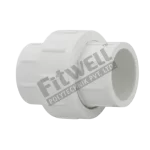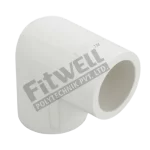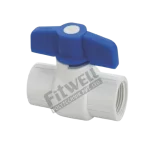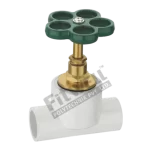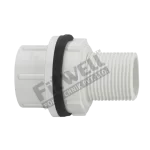The Ultimate Guide to UPVC Pipes: Safe and Efficient Solutions for Water Systems
What Factors Make CPVC Better Than UPVC for Drinking Water?
UPVC pipes are highly reliable for carrying cold drinking water, but CPVC pipes often outperform them when it comes to versatility and thermal resistance. One of the primary reasons CPVC is favored over UPVC in some scenarios is its ability to withstand high temperatures and aggressive water treatment chemicals.
How Does CPVC’s Chemical Resistance Enhance Its Suitability for Potable Water?
CPVC pipes are designed to resist chemical interactions, especially with chlorine and other disinfectants commonly used in potable water systems. This property ensures that no harmful substances leach into the water, maintaining its safety and purity. On the other hand, UPVC pipes are better suited for cold water systems where chemical stability is less of a concern. While UPVC also resists corrosion and chemical degradation, it cannot match CPVC’s performance in high-temperature environments.
Are UPVC Pipes Safe for Carrying Potable Water?
UPVC pipes are widely used for potable water applications due to their safety and non-toxic nature. These pipes do not contain plasticizers, which are often a concern in other types of plastics. This makes UPVC an environmentally friendly and health-conscious choice.
What Makes UPVC Pipes Compliant with Potable Water Safety Standards?
UPVC pipes are manufactured to meet global standards for drinking water safety, such as NSF/ANSI 61. These standards ensure that the materials used in the pipes are free from harmful contaminants that could leach into the water. Additionally, the smooth internal surface of UPVC pipes minimizes bacterial growth and scaling, keeping the water clean and safe for consumption over time.
Why Is CPVC Used for Drinking Water?
CPVC is widely used for drinking water systems because it meets safety standards, resists high temperatures, and does not affect the taste or smell of the water. Its non-toxic and non-corrosive nature makes it a preferred choice for potable water systems worldwide.
Is CPVC Better at Withstanding High Temperatures Than PVC?
Yes, CPVC outperforms standard PVC in terms of thermal resistance. While PVC softens and deforms at high temperatures, CPVC can handle hot water up to 200°F (93°C) without losing its strength or integrity.
What Are the Uses of CPVC, PVC, and UPVC Pipes?
Each type of pipe—CPVC, PVC, and UPVC—has unique properties that make it suitable for specific applications. Understanding these differences helps in choosing the right material for the job.
How Do CPVC, PVC, and UPVC Differ in Their Most Common Applications?
- CPVC Pipes: These are primarily used for hot and cold potable water systems, industrial plumbing, and chemical transport due to their ability to withstand high temperatures and aggressive chemicals.
- PVC Pipes: These are ideal for non-potable applications like irrigation, drainage, and waste management. However, PVC is not typically recommended for potable water due to concerns about leaching and chemical stability.
- UPVC Pipes: These are widely used in cold water supply, sewage systems, and rainwater drainage. Their rigidity, chemical resistance, and non-toxic nature make them a preferred choice for potable water systems in residential and commercial settings.
What Are the Pros and Cons of UPVC Pipes?
UPVC pipes offer several benefits that make them a popular choice, but they also come with a few limitations. It’s important to weigh these pros and cons to determine if UPVC is the right material for your needs.
What Key Benefits and Limitations Should Be Considered for UPVC Pipes?
- Benefits:
UPVC pipes are lightweight, easy to install, and highly resistant to corrosion and chemicals. Their long lifespan and low maintenance requirements make them an economical option for water supply and drainage systems. Additionally, they are eco-friendly, as they are free from harmful plasticizers. - Limitations:
While UPVC is excellent for cold water systems, it cannot withstand high temperatures. Prolonged exposure to UV rays can also cause the material to degrade, requiring protective measures for outdoor installations.
What Are the Advantages of UPVC Pipes?
The advantages of UPVC pipes go beyond their cost-effectiveness. Their durability, chemical resistance, and eco-friendly attributes make them a top choice for various applications.
How Does UPVC’s Durability Contribute to Its Popularity in Piping Systems?
UPVC pipes are designed to withstand harsh environmental conditions, including exposure to chemicals, moisture, and fluctuating pressures. Their rigidity and non-reactive surface ensure long-term reliability, even in demanding applications. These attributes make UPVC a go-to material for drainage systems, potable water supply, and sewage lines.
What Are UPVC Pipes?
UPVC pipes are a modified form of PVC that eliminates the use of plasticizers, resulting in a more durable and environmentally friendly material. This unique composition makes them suitable for a range of applications, particularly where safety and longevity are critical.
How Is UPVC Different From Other Plastic Pipes Like PVC and CPVC?
Unlike regular PVC, UPVC is rigid and free from harmful additives, making it safer for potable water. Compared to CPVC, UPVC lacks the thermal resistance required for hot water systems but excels in cold water applications due to its strength and chemical stability.
Which Is Better, UPVC or PVC?
Choosing between UPVC and PVC depends on the application. While both materials are derived from polyvinyl chloride, their properties differ significantly.
What Performance Factors Make One Better Than the Other for Specific Applications?
UPVC is more durable and environmentally friendly, making it the preferred choice for potable water systems. PVC, being more flexible, is better suited for irrigation and industrial uses where drinking water safety is not a concern.
Is UPVC Pipe Safe for Drinking Water?
UPVC pipes are widely recognized as a safe and reliable choice for carrying drinking water. They are designed to maintain water quality over time and comply with international safety standards.
How Does UPVC Maintain Water Quality and Safety for Long-Term Use?
UPVC pipes have a smooth internal surface that prevents sediment buildup and bacterial growth. This ensures that the water remains clean and free from contaminants, even after years of use. Additionally, UPVC’s non-toxic composition guarantees that no harmful substances leach into the water.
Can UPVC Pipes Be Used for Hot Water?
While UPVC pipes are excellent for cold water systems, their performance in hot water applications is limited.
What Temperature Limitations Affect UPVC’s Performance in Hot Water Systems?
UPVC pipes can tolerate temperatures up to 60°C (140°F). Beyond this threshold, they lose their structural integrity and may warp or crack. For hot water systems, CPVC pipes are a more suitable alternative due to their higher temperature resistance.
What Are the Disadvantages of UPVC Pipes?
Despite their many advantages, UPVC pipes have certain drawbacks that should be considered before installation.
How Do Temperature and UV Exposure Impact the Longevity of UPVC Pipes?
UPVC pipes are not designed for extreme temperatures. Exposure to freezing or boiling water can cause them to become brittle or deformed. Additionally, prolonged UV exposure can degrade the material, making it less durable for outdoor applications without proper insulation.
Which Pipe Is Best for Hot Water Supply?
In some cases, CPVC is being phased out due to environmental concerns, cost, or the availability of newer materials like PEX that offer greater flexibiliThe choice of piping material for hot water systems depends on the ability to withstand high temperatures and pressure.ty and durability.
How Does CPVC Compare to UPVC in Hot Water Applications?
CPVC is specifically designed for hot water systems, offering superior thermal resistance and chemical stability. UPVC, while excellent for cold water, cannot handle the high temperatures required for hot water supply, making CPVC the better choice for such applications.
Manufacturing Process of CPVC Piping Systems
Conclusion
UPVC pipes are an excellent choice for potable water and drainage systems due to their durability, affordability, and safety. They offer a long-lasting, eco-friendly solution for cold water supply and non-pressure applications. However, for hot water systems or environments with high chemical exposure, CPVC remains the superior option due to its enhanced thermal and chemical resistance. By understanding the strengths and limitations of UPVC, you can make a well-informed decision that ensures efficiency and reliability for your water system.
Frequently asked questions
Here are answers to some frequently asked questions about Fitwell's plumbing services.
Stay on the forefront of industry trends by checking out our latest content
Stay ahead with our latest content, designed to keep you informed on the newest industry trends and insights. Discover valuable updates that help you lead in your field.

Expeart Tips from MDPE Pipe Fittings Manufacturers to Avoid Failures
Expeart Tips from MDPE Pipe Fittings Manufacturers to Avoid Failures Understanding MDPE Pipe Fittings: An Overview MDPE (Medium Density Polyethylene) fittings, used extensively in gas and water systems, offer strong,

UPVC vs CPVC Pipe Fittings: Technical Specs and Applications
UPVC vs CPVC Pipe Fittings: Technical Specs and Applications Introduction to UPVC Pipe Fittings in Pressure Systems UPVC pipes and fittings are essential components in modern plumbing and industrial systems,

How PVC Faucet Manufacturers Are Revolutionizing Commercial Sanitation
How PVC Faucet Manufacturers Are Revolutionizing Commercial Sanitation Understanding the Role of PVC Faucets in Commercial Sanitation PVC faucets play a pivotal role in maintaining high sanitation standards in commercial
Request a Free Consultation
Get personalized plumbing solutions with a free consultation from Fitwell.

